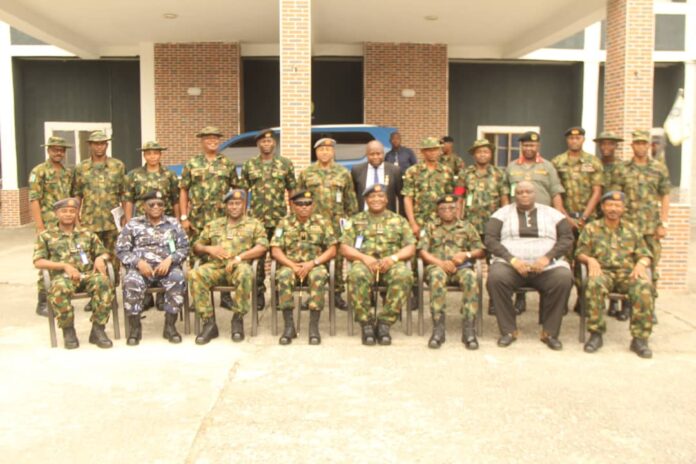By Milcah Tanimu
Gen. Christopher Musa, Nigeria’s defense chief, voiced frustration on Tuesday regarding what he perceives as the “double standards” employed by certain countries that refuse to sell military weapons to Nigeria due to human rights concerns.
Musa’s remarks underscore a significant hurdle for Nigeria in addressing its complex security crisis, ranging from the insurgency in the northeast to various armed groups affecting regions across the country.
“Even with our financial resources, acquiring equipment remains challenging,” Musa stated during a press conference in Abuja, emphasizing the urgent need for items such as helicopters, drones, and Mine Resistant Ambush Protected (MRAP) vehicles.
“Some countries cite human rights issues, others reference past actions… but often, those pointing fingers have themselves committed similar or worse offenses without repercussions. These double standards only serve to heighten global insecurity,” Musa lamented.
When questioned by The Associated Press, Musa refrained from naming the specific countries involved.
Nigeria’s security forces have long faced accusations of extrajudicial killings and unlawful detentions, leading major arms suppliers like the United States to withhold weapon sales at various points.
In December, an incident in northwest Kaduna state saw at least 85 civilians killed when a Nigerian army drone mistakenly targeted a religious gathering, highlighting ongoing challenges.
Musa asserted that Nigeria’s military has made strides in improving its human rights record, holding personnel accountable for alleged abuses. Investigations into such incidents are routine, with a report on the December tragedy forthcoming, he added.
However, Isa Sanusi, Amnesty International’s director in Nigeria, disputed claims of significant improvements, stressing the need for accountability in addressing human rights violations.
The United States has provided military support to Nigeria, including training on civilian protection. Additionally, Nigeria recently made payments for 12 attack helicopters worth nearly $1 billion, according to a State Department statement.

